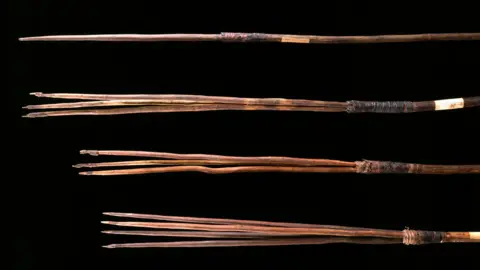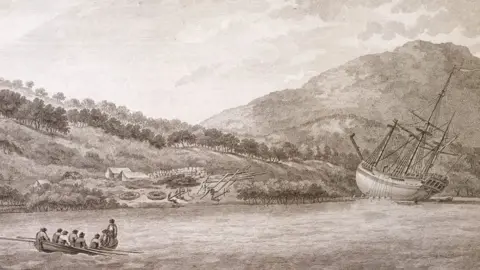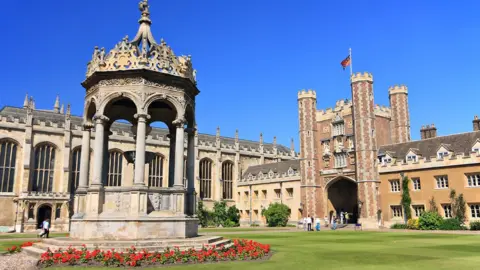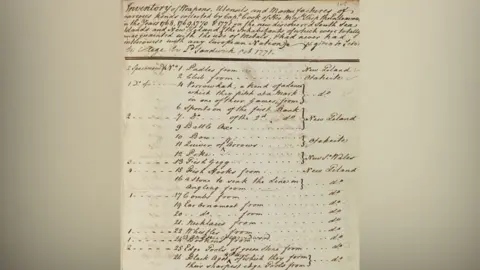Cambridge college returns 18th Century Aboriginal spears
 Cambridge University/PA
Cambridge University/PAFour spears taken from an Aboriginal community by James Cook and Joseph Banks during their first contact with Australia are being repatriated.
They will be handed over at a ceremony at Trinity College, Cambridge, to representatives from the La Perouse and Gweagal Aboriginal communities.
Ray Ingrey, Gujaga Foundation director, said their return to "the rightful people" was a "momentous occasion".
The spears were taken in 1770 and given to Trinity College the following year.
 Science Photo Library
Science Photo LibraryDirect descendants of the Gweagal people who crafted the spears more than 250 years ago will be present at the ceremony in Trinity's Wren Library.
Mr Ingrey, a Dharawal person from the La Perouse Aboriginal community, said: "The spears were pretty much the first point of European contact, particularly British contact with Aboriginal Australia.
"I think for us, it's a momentous occasion that where Australia's history began, in 1770 on the shores of Botany Bay at Kurnell, the spears that were undoubtedly taken without permission are returned to the rightful people."
Noeleen Timbery, from the La Perouse Local Aboriginal Land Council, said: "They are an important connection to our past, our traditions, and cultural practices, and to our ancestors.
"Our Elders have worked for many years to see their ownership transferred to the traditional owners of Botany Bay."
 Getty Images
Getty ImagesLt Cook was the captain of HMB Endeavour and Joseph Banks the leader of its scientists when the ship arrived at the eastern part of Australia on 29 April.
The lieutenant, who was promoted to captain in 1772, recorded that 40 spears were taken from the villages of the Gweagal people living at Kamay, the Aboriginal name for Botany Bay.
Lord Sandwich, First Lord of the Admiralty, donated four of the spears with other materials from Cook's voyage to Trinity, his former college.
They were loaned for display at Cambridge University's Museum of Archaeology and Anthropology from 1914.
The University of Cambridge college decided to repatriate them after discussions between the museum and the La Perouse Aboriginal Community, representatives of the Gweagal people, the broader Dharawal Nation, and leading community organisations.
 Trinity College, Cambridge University
Trinity College, Cambridge UniversityThey had previously been lent to museums in Australia in 2015 and 2020.
Prof Nicholas Thomas, director of the Museum of Archaeology and Anthropology and Trinity Fellow, said "the spears are exceptionally significant".
"They are the first artefacts collected by the British from any part of Australia, that remain extant and documented," he said.
"They reflect the beginnings of a history of misunderstanding and conflict. Their significance will be powerfully enhanced through return to Country."
The repatriation has been supported by the Australian government's AIATSIS-led Return of Cultural Heritage Program, and the National Museum of Australia.
A new visitor centre will be built at Kurnell, Kamay, so they can be displayed.
Linda Burney, Australia's Minister for Indigenous Australians, said: "The return of the Gweagal Spears is a significant step forward on the journey towards reconciliation and truth-telling."

Follow East of England news on Facebook, Instagram and X. Got a story? Email [email protected] or WhatsApp 0800 169 1830
